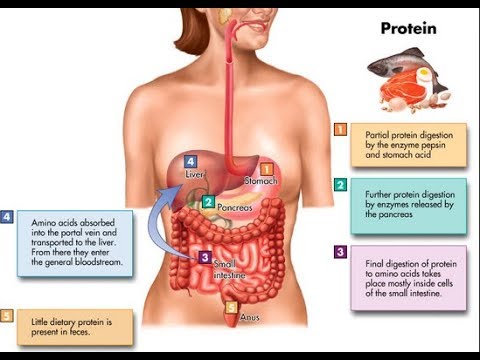For decades, nutritionists and fitness enthusiasts alike have hailed certain proteins as the pinnacle of biological value, fully absorbed and utilized by the body. Egg white, in particular, stood on a pedestal. But what if this cornerstone of nutritional wisdom is not quite as solid as we believed?
The Gold Standard Under Scrutiny
The idea that some proteins are “100% digestible” has been a comforting simplicity in a complex world of dietary advice. Egg white, with its complete amino acid profile, was often cited as the prime example, the ultimate benchmark against which other proteins were measured. It was assumed that every last molecule of its beneficial structure was meticulously disassembled and incorporated into our physiological machinery. A neat, tidy, and frankly, somewhat naive assumption.
A New Lens on Digestion
Enter the researchers from North Carolina State University, armed with high-resolution mass spectrometry – a tool capable of dissecting molecules with impressive precision. Their recent study, published in Food & Function, set out to do more than just confirm what we thought we knew. They aimed to trace the journey of various proteins through the digestive system, observing what truly makes it to the finish line, and what doesn`t.
The team examined six different protein sources: eggs, soy, casein (a milk protein), brown rice, peas, and yeast. The experiments, conducted on mice with diverse gut microbiomes, offered a fascinating, and perhaps slightly humbling, look into the intricate world within us.
The Surprising Un-Digestible Truth
What they found fundamentally challenges the long-held dogma. Fragments of all six proteins, without exception, were detected reaching the large intestine. This means that even the supposedly “perfect” egg white protein leaves behind undigested components. Our digestive system, it seems, is not the perfectly efficient protein-disassembling factory we imagined.
Even more striking was the case of brown rice protein. This plant-based contender proved remarkably resilient, with up to 50 percent of its components traversing the entire digestive tract without being processed. One can almost picture these hardy protein fragments defiantly sailing through the digestive rapids, untouched by the enzymatic torrent.
Beyond Simple Absorption: The Microbiome`s Role
But the story doesn`t end with mere undigested fragments. The researchers also observed that certain “functional” proteins – like soy trypsin inhibitor, or the antimicrobial compounds found in eggs such as lysozyme and avidin – also remained intact. Why is this significant?
These undigested compounds don`t just pass through harmlessly; they become available to the vast and bustling community of microorganisms residing in our large intestine – our gut microbiota. This interaction is far from trivial. These specific protein fragments can potentially alter the composition of our gut bacteria, which in turn can influence everything from our metabolism to inflammatory responses. It`s a subtle, yet powerful, connection between what we eat and who we are, right down to our cellular processes.
“Protein digestibility, it turns out, is not a simple binary switch of `on` or `off.` It’s a nuanced spectrum, influenced not just by the type of protein, but by its specific molecular structure, and perhaps most critically, by the unique ecosystem of microbes within each individual.”
The Dawn of Personalized Nutrition
This research underscores a pivotal concept: protein assimilation isn`t a one-size-fits-all phenomenon. The reason different people respond differently to the same protein source – some thriving, others experiencing discomfort or less optimal results – can largely be attributed to the interplay between specific protein molecules and their individual gut microbiomes.
This isn`t a call to abandon protein. Far from it. Instead, it`s an invitation to a more sophisticated understanding of nutrition. It suggests that our quest for optimal health might involve looking beyond broad categories and delving into the specifics of protein structure and, crucially, the individualized world of our gut bacteria. The future of nutrition, perhaps, lies not in finding the perfect protein, but in understanding your perfect protein, tailored by your unique biology.
Rethinking Our Plates
So, the next time you crack an egg or enjoy a protein-rich meal, remember: the journey within is far more complex and fascinating than once imagined. The notion of a perfectly digestible, universally beneficial protein has been gently, yet firmly, nudged from its pedestal. And in its place, a more intricate, personalized, and truly intriguing picture of human nutrition begins to emerge.








